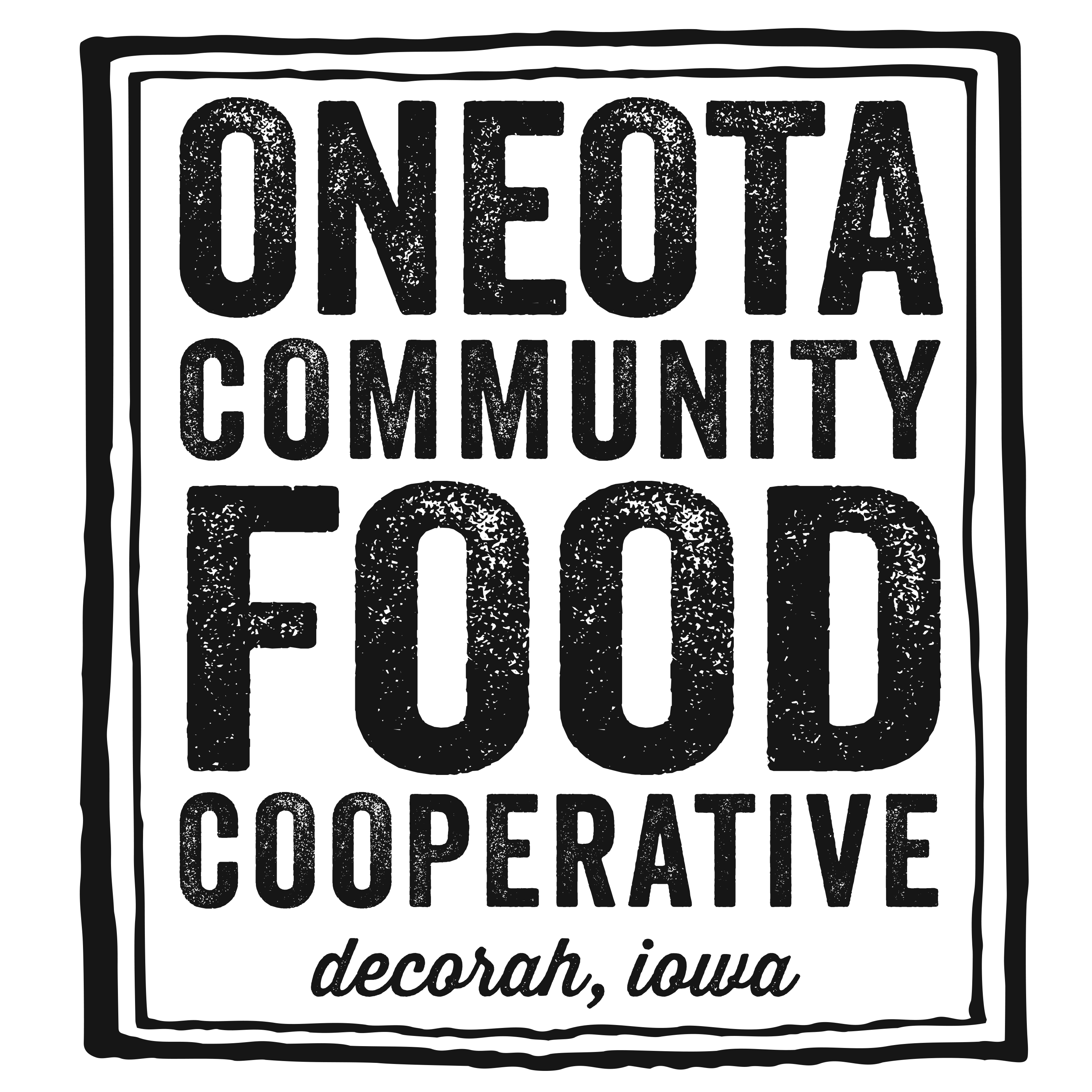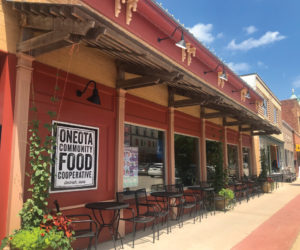By: Kristin Eggen
Oneota Community Food Co-op, Winneshiek Energy District, Decorah Power. They are three peas in a pod – three models of local stewardship, self-reliance, and leadership lighting the way for others, three opportunities to create and own a better future which won’t exist or persist without you. And you are indeed needed for all three.
Reading this, you’re probably very familiar with the Co-op. You may be less familiar with the Energy District and Decorah Power. We’ll focus on the Energy District this issue explaining the relationship with Decorah Power and then dive deeper into Decorah Power in the next issue.
Winneshiek Energy District formed in 2010 as a local non-profit dedicated to facilitating a 100% clean and locally-owned energy system by mid-century for Winneshiek County and beyond. That “beyond” is critical because while our work is locally-focused, the focus includes the model itself as a replicable option for communities and counties everywhere – a “universal local.” More on this movement-building in a minute.
The Energy District works locally through a combination of energy planning, market transformation and local investment. We offer energy planning for all types of energy consumers on efficiency and renewable options and provide technical and financial analysis to help consumers make smart decisions. Market transformation is that broad sweep of education, training and momentum building for clean energy adoption. Programs such as the Green Iowa AmeriCorps home energy assessments, monthly Energy Breakfasts at T-Bock’s, farm energy planning, solar financing workshops and more have provided northeast Iowans with the tools they need to join the clean energy transition. Local investment is the virtuous cycle of keeping energy dollars local, creating jobs, reinvesting locally, creating more jobs, etc.
This ambitious work takes people, resources and partnership – especially partnerships. Together, we’ve served well over a thousand households, farms and businesses with energy planning; achieved rates of efficiency implementation and solar ownership that lead Iowa and the Midwest; catalyzed the investment of tens of millions into the local/regional economy, and likely created dozens of jobs in the process. We believe this is the tip of the iceberg.
While the opportunities presented by the new energy world continue to grow, so do the obstacles for continued acceleration in both the “clean” and “locally-owned” aspects of our mission. The incumbent Decorah electrical utility has unfortunately lagged behind many Iowa and Midwest peers in transitioning away from fossil fuels. Its investor-owned business model is not especially enamoured of consumer or community ownership of energy assets and profits, whether solar or otherwise.
The investor-owned electric utility serving Decorah is a “regulated monopoly” granted an exclusive service territory by the Iowa Utilities Board, where most dollars flow out of our community. Why not flip that to a community-owned monopoly promoting local investment, keeping all profits local, and accelerating the clean energy transition? In early 2017 a new nonprofit called Decorah Power was formed to investigate that question, and bring the opportunity to the community.
So while Decorah Power grew out of the work of the Energy District and local partners, it is very focused in geography (Decorah) and scope (investigate and pursue a municipal electric utility). The Energy District is wholeheartedly supportive of Decorah Power and is continuing to provide technical and organizational assistance. Meanwhile, we continue our suite of additional clean energy programs and initiatives.
Among these, as mentioned earlier, is the building of an Energy District movement. “Movement building” – like “creating a replicable model” – is audacious phraseology much easier said than done. Our very name, however, refers to the potential success of a “universal local” model, for example, that of the Soil and Water Conservation Districts (SWCD) which grew out of the Dust Bowl and Great Depression. The SWCDs grew from zero to a network of thousands covering almost every county in the country over a couple decades and provided the local structure and “ownership” of the private lands conservation movement going forward.
Clean energy and climate action is a similar perfect storm of imperative and opportunity, right down to the current lack of a “universal local” delivery system for organizing leadership and implementing change, and the clear existence of passionate people everywhere wanting and willing to engage. Our initial forays into sharing the model back in 2016 almost immediately uncovered this passion in Clayton and Howard Counties. Today there are incorporated, functioning Energy Districts in both. We share technical energy planning services currently focused on farms and those of our Green Iowa AmeriCorps team focused on households and overall community engagement. We also share ideas, frustrations, and plans for empowering more of our neighbors to join the movement.
Our commitment to this work is made possible thanks to our local members and sponsors and continues to pay off. Dubuque is the latest Energy District in formation, and we’re in conversation with at least three additional Iowa counties. We’re also working closely with partner organizations in two neighboring states on the model’s applicability to their environment, and investigating policy tools that could help institutionalize the movement while maintaining clear local leadership and ownership.
Movement building is never easy, but nothing meaningful ever is. This is why we need YOU to join the Winneshiek Energy District, and contribute to this locally-led movement financially, ethically, and with time and talent. Through the Energy District – as with Oneota Co-op and Decorah Power – we will truly own and build the future.



